The Kremlin has yet to issue a formal response to the 30-day ceasefire proposal that emerged from Tuesday's US-Ukraine talks in Saudi Arabia.
However, initial reactions from Kremlin-controlled media outlets suggest that agreeing to an immediate truce under the current circumstances runs counter to Russia’s strategic interests.
Russian analysts appear united in their assessment that this is not an opportune moment for the Kremlin to halt its military operations, given its perceived advantage on the frontlines.
"Any agreements will be on our terms, not America's," said Russian senator Konstantin Kosachev the day after the Jeddah talks.
This sentiment is widely echoed by pro-Kremlin commentators.
State-owned news agency RIA Novosti published an article yesterday with the headline "Ukraine Capitulated in Jeddah", implying that Ukraine had surrendered to the US and its ceasefire conditions.
"Russia is being asked to accept a ceasefire while its enemy is losing on the battlefield," the journalist argued.
Russian media have extensively covered Moscow's successes in driving Ukrainian forces out of the Kursk region.
Following the Russian army's recapture of Sudzha, the Kremlin is portrayed as holding the strongest negotiating position in any potential peace talks.
As Moscow considered the ceasefire proposal, last night President Vladimir Putin visited Kursk for the first time since Ukrainian troops captured part of the region last year, Russian media reported.
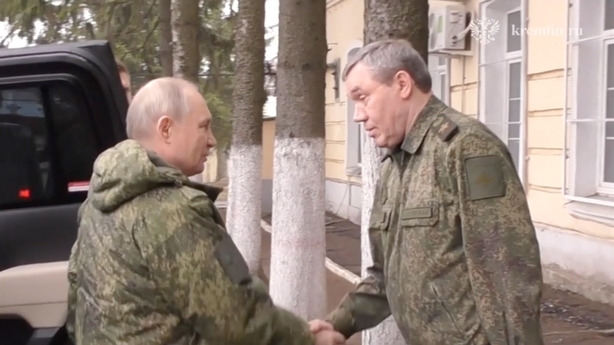
"For Moscow, the results of the Jeddah talks were disappointing, as the US has resumed military aid to Ukraine," the article in RIA Novosti continued.
The author concluded that "accepting the Jeddah proposal in its current form is off the table", because Russia’s core demands remain unfulfilled.
This perspective dominates Russian press reactions to the ceasefire proposal.
They consistently reference President Putin's conditions outlined in his address to the Ministry of Foreign Affairs in June 2024.
Mr Putin insists on a complete withdrawal of Ukrainian forces from the Donetsk, Luhansk, Kherson, and Zaporizhzhia regions within their internationally recognised borders.
Despite annexing these territories in 2022, Russia does not fully control any of them, and the international community has refused to recognise these annexations.
Mr Putin has further insisted that Ukraine abandon its NATO aspirations and that all western sanctions be lifted.
Pro-Kremlin journalists maintain that Mr Putin will not back down from these demands.
In a piece on another pro-Kremlin news website, Radio Sputnik, the negotiations between the Ukrainian and American delegations in Saudi Arabia were described as "nothing more than the antics and posturing of political parrots, as well as an attempt to dupe Russia".
Russia’s most-read tabloid, Komsomolskaya Pravda, interviewed a professor from the Higher School of Economics in Moscow, who suggested that Russia’s advances in the Kursk region may have pushed Ukraine to accept Washington’s ceasefire proposal.
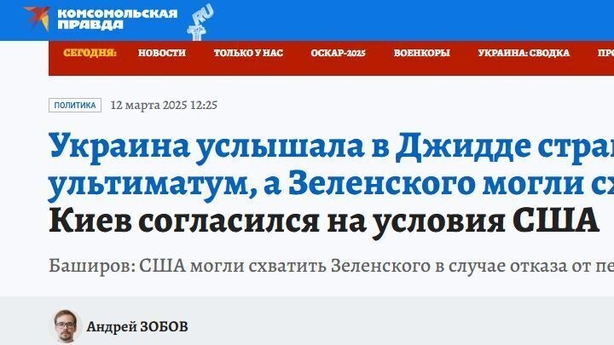
The professor speculated that, had Kyiv rejected the ceasefire, the US might have arrested Ukrainian President Volodymyr Zelensky.
This claim, however, appears to be pure propaganda with no legal or diplomatic foundation.
In the prominent business outlet Kommersant, an analysis titled "Trump vs Europe" argued that Europe would have no place at the negotiating table.
The commentator contended that, for Mr Trump and his team, European "globalists, Atlanticists, liberal values, and the export of democracy" are ideologically foreign.
The Russian analyst also claimed to know the terms of an agreement reached between the US and Russia presidents during their phone call: no NATO membership for Ukraine, and a change of leadership in Kyiv.
One of Russia’s most popular online news outlets, Lenta.ru, published an article quoting war correspondents. "Shove it up your a**," one correspondent was quoted as saying in response to the 30-day ceasefire proposal.
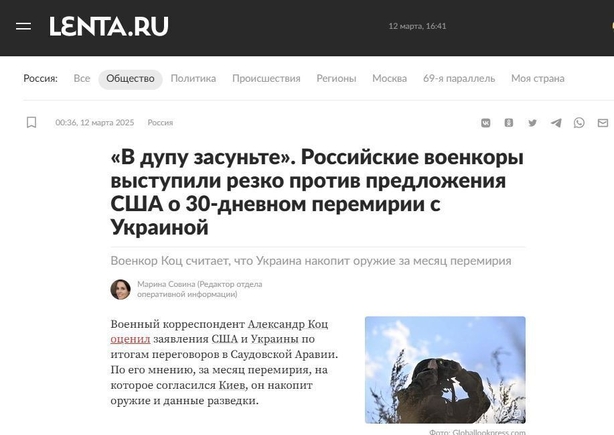
"Once again, they’re opening the flow of weapons and intelligence," he said.
"Ukraine stockpiles all of this for a month. And then Russia is blamed for the continuation of the war?"
Unlike Mr Trump, Russia's president is "in no rush to end the war", said an article on the nationalist pro-Kremlin site Regnum.
The author also warned of further Russian invasions into Ukrainian territory, claiming that Ukraine might not have enough military aid by the summer, when Russia-Belarus military drills take place, potentially spilling over into Ukraine’s Chernihiv and Kyiv regions.
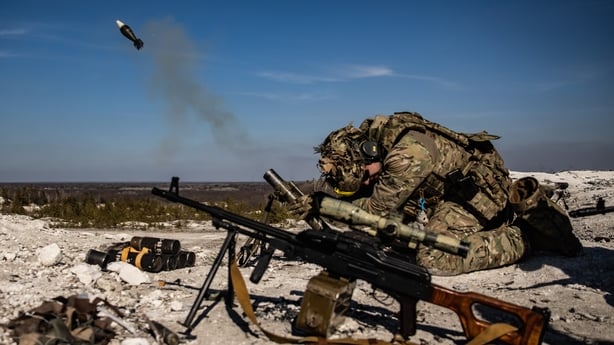
Public sentiment in Moscow largely aligns with pro-Kremlin media narratives.
This is hardly surprising, given that state-controlled television and newspapers remain the primary information sources for most Russians.
One Moscow resident told Reuters that a ceasefire is not in Russia’s interest "given the advances Russian troops are making in Ukraine and the Kursk region".
He suggested that Russia should seize more Ukrainian territory, including the cities of Kharkiv, Odessa, and Kherson - none of which are currently under Kremlin control.
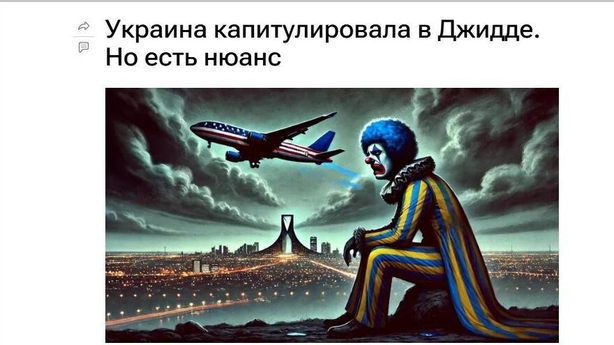
Another woman expressed a desire for peace on Russia’s terms and President Putin’s conditions.
"Nothing depends on regular Russians, and the authorities know better," shared another Moscow resident.
"We want everything to end quickly. We want peace and for no one to die. There have been so many deaths".







